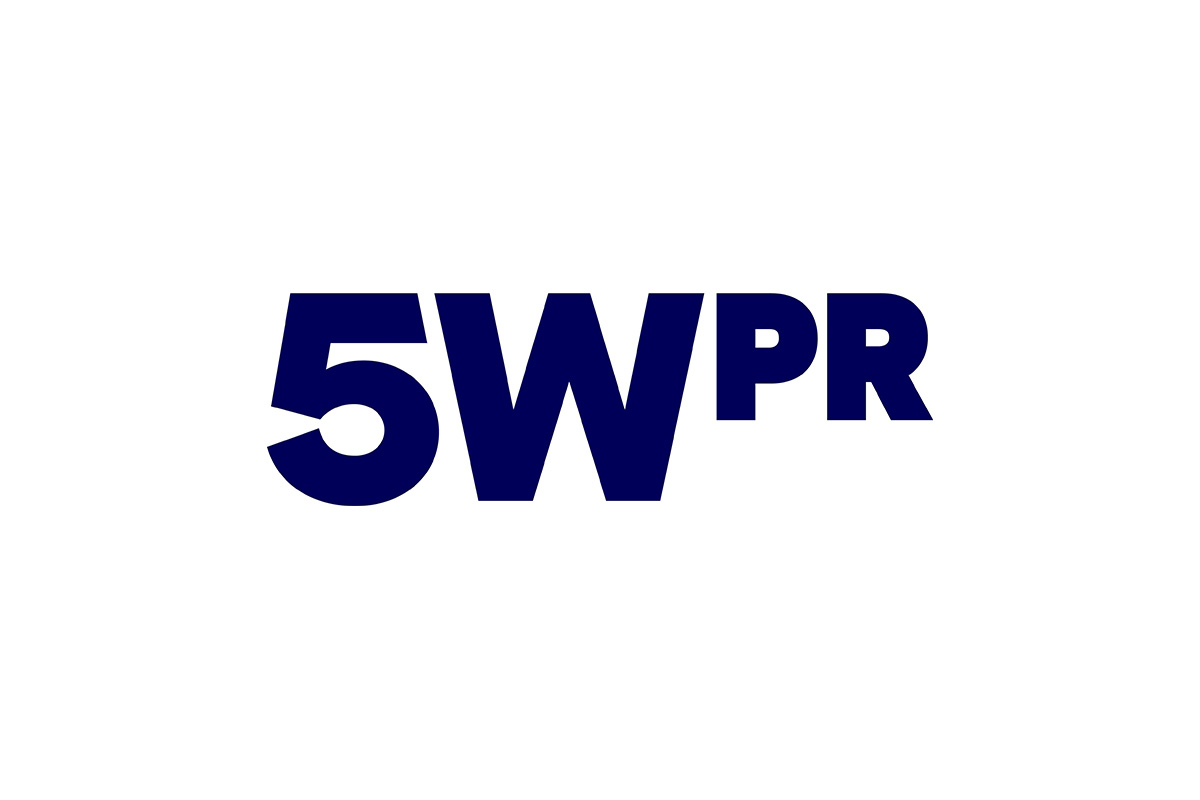Industry News
Measures for a safer gambling market – CEO call from the gaming industry

The Swedish Trade Association for Online Gambling (BOS (Branschföreningen för Onlinespel)) has today published the following open letter:
The Ministry of Finance’s proposal for placing further restrictions on the Swedish gambling market has been met by strong and unanimous criticism. All stakeholders in the gambling industry (state and private), as well as sports clubs, the Swedish Gambling Authority, and international and national media have all stated that the proposals are unrealistic and how they play into the hands of the unlicensed market. The Minister for Public Administration then chose to adjust the proposals somewhat, but only to improve conditions for state-controlled companies. Now a new report shows that implementing deposit limits on online casinos alone would mean that almost half of all bets would end up being placed with unlicensed companies. The entire Swedish gambling industry has been beset by uncertainty, with many customers abandoning licensed companies and moving instead to unlicensed companies. If we don’t start to cooperate and introduce long-term measures grounded in facts, we risk turning back the clock to what the market looked like prior to re-regulation.
Recently, the independent research firm Copenhagen Economics published a new report describing how deposit limits would affect online casinos. The report, which is based on turnover data, consumer surveys, interviews, and international research, shows that the channelization for online casinos will fall from an already low 75% to an even lower 52-63% if deposit limits come into force. This means almost half of all bets will be placed with unlicensed companies.
Neither the Ministry of Finance nor any other stakeholder has presented facts to support the underlying assumption that gambling in general – and play on online casinos in particular – have increased during the covid-19 crisis. In its recent report to the Swedish government, the agency responsible for the Swedish gambling market also confirms it hasn’t detected increased gambling during the coronavirus pandemic.
The government is aware of the alarmingly low percentage of online casino players who now play within the licensed Swedish system. The government has also seen data from the Swedish Tax Agency that show gambling on horse races – and not online casino gambling – has increased during the coronavirus crisis.
We share the government’s view that protection for and of players is of the utmost importance. We agree that this work must continue and that together we can create a sustainable gambling market with strong consumer protections. But the work must be based on facts.
The Ministry of Finance has the opportunity to implement a number of fact-based measures that would improve consumer protections without damaging the important channelization. On the contrary, the channelization would benefit with these measures, which would also strengthen consumer protections.
Expand licensing requirements
Introducing licensing requirements for companies that supply games as well as the companies that provide customers, so-called B2B licenses, would increase the Swedish Gambling Authority’s ability to regulate the market and prevent the black market from targeting Swedish gamblers. The measure would promote the channelization and is therefore welcomed by the licensed gambling industry as well as gambling addiction organizations.
IQ campaign for the gambling industry
There is very little awareness about Spelpaus, the central self-removal register, as well as other regulated consumer protection measures. The Swedish Gambling Authority and the Swedish Consumer Agency should be tasked with increasing public awareness about these tools. Systembolaget’s IQ campaign could serve as inspiration for a proactive information portal.
Gambling companies’ data is part of the solution
The digital gambling industry collects and processes large amounts of data on customers’ gambling behaviour. The Ministry of Finance should instruct the Swedish Gambling Authority to request regular reports, with anonymized data, on customers’ gambling behaviour in order to increase understanding about gambling habits and identify any systematic problems. The gambling companies have this data and already share it with researchers.
Great strides have been made in machine learning and artificial intelligence. Computers are capable of handling huge amounts of data and identifying the patterns required for increasing understanding and providing the basis for decisions. The gambling industry is also making progress in this area and sees great opportunities for improving our ability to detect and stop harmful phenomena such as problem gambling, match fixing, and money laundering. The Ministry of Finance has a golden opportunity to initiate a strategic collaboration in this area together with authorities, researchers, the gambling industry, and gambling addiction groups.
Sharing of data between companies
The EU’s strict data protection laws are generally a good thing. We share the view that each individual should own their own data. Having the opportunity to share personal data between gambling companies as well as between gambling companies and authorities would make it easier to quickly identify and prevent gambling problems or fraudulent activities. Today, every gambling company can make these discoveries on their own but can’t share the information in a simple and legal way.
Risk ratings for players, not products – and with support from actual data
Addictive and unhealthy behaviour by individuals is individual and is easy to track in the gambling industry thanks to the large amount of data that is continuously collected from all players. Any future risk classification system must be based on the conditions and actions of the individual.
Extend the Swedish Gambling Authority’s mandate
The government must clarify the Swedish Gambling Authority’s mandate to ensure the integrity of the licensing system and in so doing strengthen the all-important degree of channelization.
Extend the Duty of Care to more industries
The challenges we have in society are rarely isolated to one individual stakeholder or industry. In order to curb increased indebtedness stemming from gambling, the lending market – and the instant lending market in particular – also need to take responsibility for lowering excessive debts. Today, the gambling industry can access information about a customer’s liquidity, but it’s hard to determine whether the money is borrowed or earned. A central self-removal register like Spelpaus should be considered for instant loans.
Stockholm 2020-06-08
Pontus Lindwall, CEO, Betsson AB
Henrik Tjärnström, CEO, Kindred Group
Gustaf Hagman, Group CEO, LeoVegas
Therese Hillman, VD, NetEnt AB
Ulrik Bengtsson, Group CEO, William Hill Plc
Lahcene Merzoug, CEO, ComeOn
Alexander Stevendahl, CEO, Videoslots
Tomas Backman, CEO, Hero Gaming
Henric Andersson, CEO, SuprNation
Gustaf Hoffstedt, Secretary General, Swedish Trade Association for Online Gambling (BOS)
Powered by WPeMatico
Accel Entertainment
Accel Entertainment Eyes Growth in Chicago’s New VGT Market

Accel Entertainment is assessing the feasibility of expanding its distributed gaming operations into Chicago, following reports that the city may soon allow Video Gaming Terminals (VGTs) in licensed establishments.
The City Council Office of Financial Analysis (COFA) has estimated that the proposed framework for VGTs could generate approximately $64 million in incremental annual tax revenue for the City of Chicago. Based on existing legislative revenue splits, and further stated in the COFA’s analysis, these estimates suggest a total annual Chicago VGT gross gaming revenue (GGR) of $1B incremental to the existing $3B generated in the rest of the state, once fully implemented, which they note in their analysis may take up to 10 years based on previous studies. VGT operators currently receive a statutory split of GGR equal to 32.04% which would translate into approximately $320 million of expected incremental Net Terminal Income for the licensed VGT operator community operating in Chicago.
The Company expects that a Chicago VGT market could begin generating revenue for Accel as early as the third or fourth quarter of 2026, following completion of the legislative, regulatory, and implementation processes, with a gradual ramp-up toward steady-state performance over time.
From a capital deployment perspective, Accel believes it is well positioned to leverage its strong balance sheet, existing fixed operating infrastructure, route management capabilities, and fixed asset base to capitalize on opportunities in a Chicago VGT market, subject to customer acquisition rates and final regulatory requirements.
In anticipation of the finalization of Chicago’s VGT regulatory and operating framework, Accel will continue to assess its capital deployment strategy for Accel’s expected participation in a Chicago VGT market, including ramp timing, and marginal costs to service new accounts.
Accel will continue to monitor developments closely and plans to update the investor community as appropriate as the regulatory and operating framework emerge.
The post Accel Entertainment Eyes Growth in Chicago’s New VGT Market appeared first on Americas iGaming & Sports Betting News.
Dan Connors
Pavilion Payments Appoints Diallo Gordon as CEO

Pavilion Payments has appointed Diallo Gordon as its Chief Executive Officer, effective January 1, 2026. Gordon’s appointment follows a successful 2025, during which the company strengthened operational execution, advanced key initiatives, and expanded customer relationships. Pavilion Payments enters 2026 with strong momentum and an aligned leadership team supporting Gordon in his new role.
Dan Connors, who has served as CEO since April 2024, has transitioned to the role of Executive Chairman. In this position, he will continue to support Pavilion Payments’ long-term strategy, customer relationships, and corporate development priorities while working closely with Gordon and the senior leadership team.
Gordon joined Pavilion Payments in January 2025 as President, bringing nearly 30 years of leadership experience across innovation, technology, defense, gaming, and payments. He has held roles at Passport Technology, Phi Gaming, Everi Holdings, Aristocrat Technologies, and the Mississippi Gaming Commission, and earlier served in the US Air Force supporting space and weapons research for the Department of Defense, NASA, and NATO.
At Pavilion Payments, Gordon has overseen sales, marketing, product strategy, and innovation. In his first year with the company, he played a key role in accelerating development initiatives, enhancing operational performance, and strengthening organizational alignment. As CEO, he will continue to drive growth, deepen operator partnerships, and guide Pavilion Payments’ strategic direction across the gaming ecosystem.
“Diallo is an extraordinarily talented executive and one of the finest leaders I have worked with. His deep industry knowledge, engineering background, customer-first mindset, and passion for innovation make him uniquely suited to lead Pavilion Payments forward. We accomplished a great deal in 2025, and I have complete confidence in Diallo and the strong leadership team supporting him as we enter 2026,” said Dan Connors, Executive Chairman of Pavilion Payments.
“I am honored to serve as CEO of Pavilion Payments. We have a world-class team, a strong foundation, and a shared commitment to delivering exceptional experiences for our customers and their patrons. After a successful 2025, we are well-positioned for 2026, and I look forward to continuing our work together to advance Pavilion’s leadership in the gaming payments ecosystem,” said Diallo Gordon.
The post Pavilion Payments Appoints Diallo Gordon as CEO appeared first on Americas iGaming & Sports Betting News.
5W
5WPR Expands Gambling and Gaming PR and Digital Marketing Services Ahead of 2026

5W, one of the largest independently owned PR firms in the US, announced the expansion of its gambling PR and digital marketing services, helping iGaming operators, sports betting platforms, casinos, esports brands, and gaming studios prepare for the year ahead. The enhanced offering is designed to elevate brand visibility, build trust with players and partners, and drive measurable growth as the industry enters 2026.
5W provides integrated PR, digital marketing, and online reputation management solutions, including media relations, influencer partnerships, content creation, SEO, social campaigns, email marketing, event promotion, and crisis communications. For digital-first strategies, digital PR ensures brands reach the right audiences while strengthening credibility across search and social platforms.
“Our expanded gambling and gaming PR and digital marketing services are designed to help brands enter 2026 with momentum. By integrating PR, digital marketing, and reputation management, we help clients stand out, connect with audiences, and build trust that drives growth for the year ahead,” said Ronn Torossian, Founder & Chairman of 5W.
This expansion underscores 5W’s commitment to delivering results-driven communications and digital marketing solutions for high-growth and established brands in gambling, gaming, and esports.
The post 5WPR Expands Gambling and Gaming PR and Digital Marketing Services Ahead of 2026 appeared first on Americas iGaming & Sports Betting News.
-

 16-Reel Slot6 days ago
16-Reel Slot6 days agoMighty Wild™: Gorilla Unleashed – Wazdan Scales New Heights in Jungle Series
-

 Arizona5 days ago
Arizona5 days agoArizona Department of Gaming Reports $44.9 Million in Tribal Gaming Contributions for the Second Quarter of Fiscal Year 2026
-

 California7 days ago
California7 days agoCGCC Gaming Policy Advisory Committee (GPAC) Meeting: Jan 20, 2026
-

 Alex Lorimer5 days ago
Alex Lorimer5 days agoMega Mammoth – Multiplier Mayhem Charges into the Gaming Corps Portfolio
-

 Big Hot Flaming Pots5 days ago
Big Hot Flaming Pots5 days agoBig Hot Flaming Pots: Tasty Treasures – Lightning Box Brings Land-Based Hit Online
-

 Argentina Gambling6 days ago
Argentina Gambling6 days agoBETER names Matias Tapia Gomez as LatAm Business Development Manager
-

 Affiliate Events4 days ago
Affiliate Events4 days agoTaking Off with N1 Partners at iGB Affiliate 2026 in Barcelona: Grand Final and a Helicopter for the N1 Puzzle Promo Winner
-

 Booming Games4 days ago
Booming Games4 days agoBooming Games and Live Play Mobile Launch “LivePlay™ Slots” with Exclusive Modo Debut



















